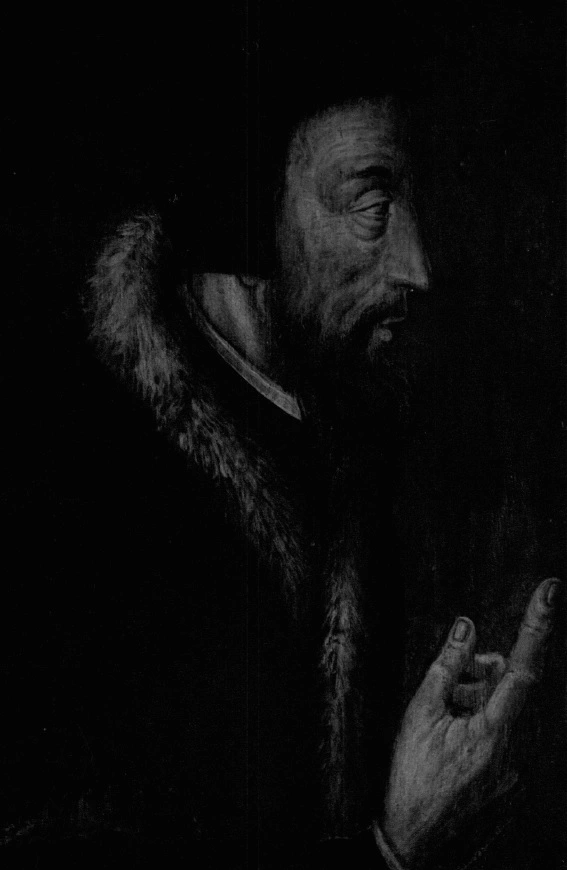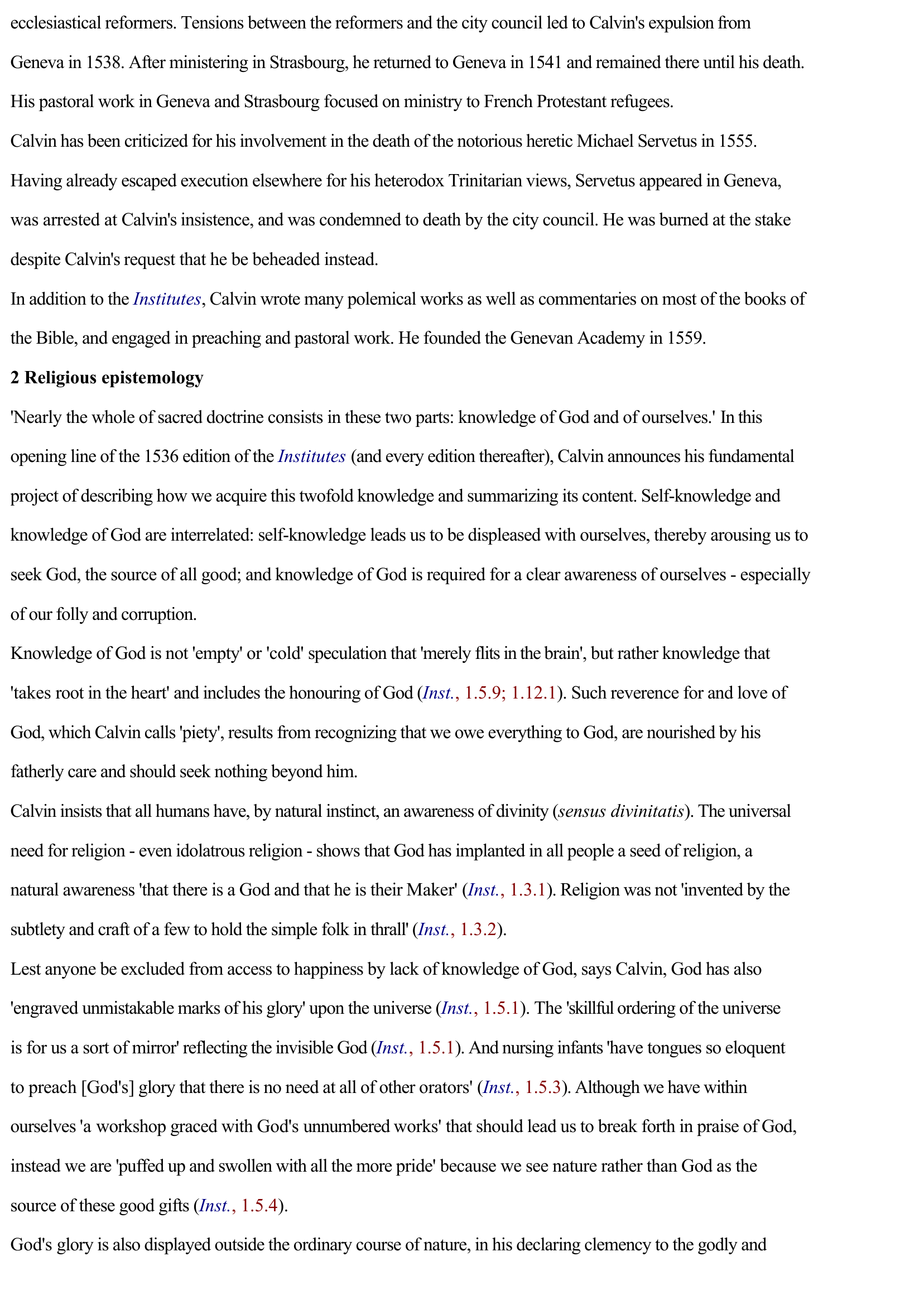Calvin, John
Publié le 22/02/2012

Extrait du document


«
ecclesiastical reformers.
Tensions between the reformers and the city council led to Calvin's expulsion from
Geneva in 1538.
After ministering in Strasbourg, he returned to Geneva in 1541 and remained there until his death.
His pastoral work in Geneva and Strasbourg focused on ministry to French Protestant refugees.
Calvin has been criticized for his involvement in the death of the notorious heretic Michael Servetus in 1555.
Having already escaped execution elsewhere for his heterodox Trinitarian views, Servetus appeared in Geneva,
was arrested at Calvin's insistence, and was condemned to death by the city council.
He was burned at the stake
despite Calvin's request that he be beheaded instead.
In addition to the Institutes , Calvin wrote many polemical works as well as commentaries on most of the books of
the Bible, and engaged in preaching and pastoral work.
He founded the Genevan Academy in 1559.
2 Religious epistemology
'Nearly the whole of sacred doctrine consists in these two parts: knowledge of God and of ourselves. ' In this
opening line of the 1536 edition of the Institutes (and every edition thereafter), Calvin announces his fundamental
project of describing how we acquire this twofold knowledge and summarizing its content.
Self-knowledge and
knowledge of God are interrelated: self-knowledge leads us to be displeased with ourselves, thereby arousing us to
seek God, the source of all good; and knowledge of God is required for a clear awareness of ourselves - especially
of our folly and corruption.
Knowledge of God is not 'empty' or 'cold' speculation that 'merely flits in the brain' , but rather knowledge that
'takes root in the heart' and includes the honouring of God ( Inst. , 1.5.9; 1.12.1 ).
Such reverence for and love of
God, which Calvin calls 'piety' , results from recognizing that we owe everything to God, are nourished by his
fatherly care and should seek nothing beyond him.
Calvin insists that all humans have, by natural instinct, an awareness of divinity ( sensus divinitatis ).
The universal
need for religion - even idolatrous religion - shows that God has implanted in all people a seed of religion, a
natural awareness 'that there is a God and that he is their Maker' (Inst. , 1.3.1 ).
Religion was not 'invented by the
subtlety and craft of a few to hold the simple folk in thrall' (Inst. , 1.3.2 ).
Lest anyone be excluded from access to happiness by lack of knowledge of God, says Calvin, God has also
'engraved unmistakable marks of his glory' upon the universe ( Inst. , 1.5.1 ).
The 'skillful ordering of the universe
is for us a sort of mirror' reflecting the invisible God ( Inst. , 1.5.1 ).
And nursing infants 'have tongues so eloquent
to preach [ God's ] glory that there is no need at all of other orators' (Inst. , 1.5.3 ).
Although we have within
ourselves 'a workshop graced with God's unnumbered works' that should lead us to break forth in praise of God,
instead we are 'puffed up and swollen with all the more pride' because we see nature rather than God as the
source of these good gifts ( Inst. , 1.5.4 ).
God's glory is also displayed outside the ordinary course of nature, in his declaring clemency to the godly and.
»
↓↓↓ APERÇU DU DOCUMENT ↓↓↓
Liens utiles
- John Calvin
- Coolidge, John Calvin
- Calvin John COOLIDGE
- John Calvin Coolidge
- Martin Luther, Calvin, John Donne et Johannes Eckart

































